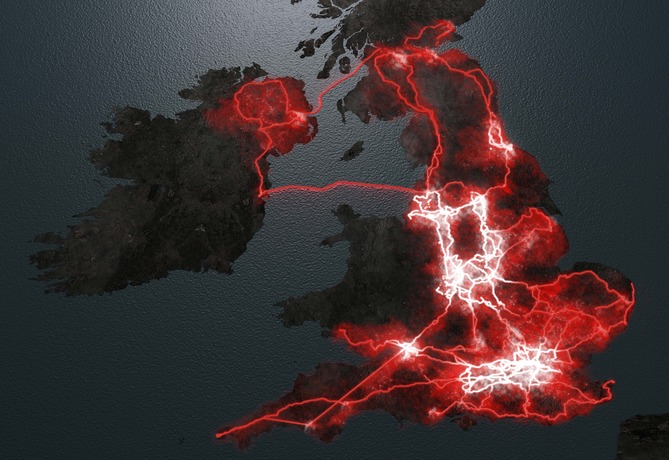

The government plans to make 10Mbps broadband available to anyone who wants it in the UK by 2020, bringing the Internet in line with other utilities like water and electricity.
The current target for superfast broadband is 95 percent coverage by 2017, with a universal service of 2Mbps available to all by the same deadline.
However this minimum speed has been the subject of debate, with the government suggesting it could be increased to ensure homes and businesses can access the most popular web services.
Cameron is expected to reveal more details about the plans later today, but it is unclear how much funding will be made available to deliver the initiative. The government has made £790 million available for the first two phases of Broadband Delivery UK (BDUK) – a project that aims to deliver superfast broadband to areas not considered commercially viable – which has so far connected more than three million premises.
BT, which won the lion’s share of BDUK funding, has said it is prepared to deliver 10Mbps but says it does not assume it would receive government funding should it become available – so long as a stable regulatory environment is in place following the conclusion of Ofcom’s once-in-a-decade review of the communications market.
BDUK has been criticised for a number of factors, including the speed of rollout, an alleged lack of transparency and that handing BT so much public money is in effect a public subsidy. Both the government and BT have continually defended their progress.
“The UK’s digital landscape is being transformed – our rollout of superfast broadband is helping millions of people who would otherwise have missed out to get online. Coverage has already reached more than 83 per cent of UK homes and businesses,” added culture secretary John Whittingdale.
“By next month, 3.5 million more UK homes and businesses will have access to superfast speeds – and the government’s superfast programme is on track to extend that to 95 percent by the end of 2017.”
“Putting an end to the digital divide will be a shot in the arm for regional growth,” added John Cridland, CBI Director General. “For businesses today, high quality digital connectivity is as crucial to growth and productivity as roads, railways and airports. So the Government’s commitment to continually raise the bar with this new universal service obligation of 10 mbps will be welcomed by businesses around the UK.
“The consultation on how to make this new minimum speed a reality must ensure that telecom operators are able to operate with certainty and build on the significant levels of investment they have already made, often with speeds well in excess of this
American space agency prepares for testing of Boeing's Starliner, to ensure it has two space…
As UK and Europe develop closer military ties, European Commission says it will invest €1.3…
Zuckerberg seeks to revive Facebook's original spirit, as Meta launches Facebook Friends tab, so users…
Notable development for Meta, after appeal against 2021 WhatsApp privacy fine is backed by advisor…
First sign of shake-up under new CEO Lip-Bu Tan? Three Intel board members confirm they…
Trump's nominee for SEC Chairman, Paul Atkins, has pledged a “rational, coherent, and principled approach”…
View Comments
complete hogwash. We are at a speed less than 2meg, and after continual complaining to every provider I have tried, and with BT for general phone access, they have all said that "your region is signed off as having met the 2meg guidleines, and we have no intention of upgradunbg any of teh infrastructure to your property in our currentt plans." when further pushed, I was able to find out their "plans" go out to 2022. We have been paying the same premium as superfast broadband but not getting that service. It is about time this government stood firm and forced operators to reduce costs for slower speeds. Why do I pay 16 quid for a line of less than 2meg when Mr connected in the city has the same cost for 20, 30, even 50meg. It is obscene. How about £1 per meg per month as a "fair" service cost. I'd pay £2 for 2 meg, and if you really need 20 meg, pay £20, and those that feel the need to go for 50meg pay £50 to help subsidise funding in rural areas. Hell, I'm 2 miles from people with 30meg, why is it so difficult to get that extra??? Even tried asking "wireless" companies, but their efforts are closer to the built up areas - yes, really. WHY? built up areas have good landline speed, why invest in wireless in areas that have good connectivity? Come and put your wireless box near me and the rest of my village so that we can enter the digital age. BBC iPlayer? not a chance. So on my reckoning, I should also get a subsidy on my television license, as I'm paying for it and unable to get it.
Makes me so so so mad when I hear about "the next thing we are doing is improving speeds for those that have 20 or 30 meg so they are 50 meg, and investing in research on how to get >100 or 200meg. GGGGGGRRRRRRRRRRR